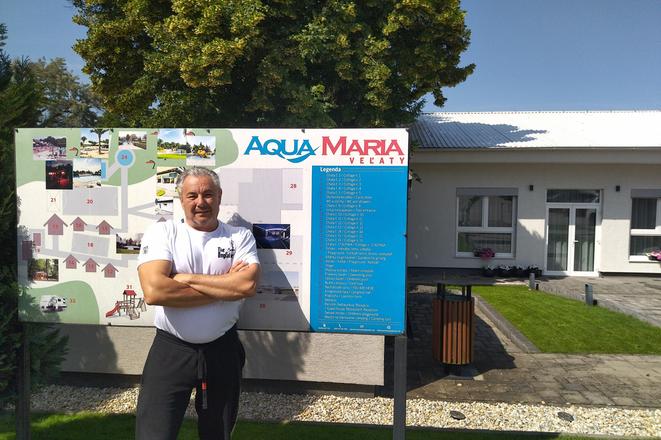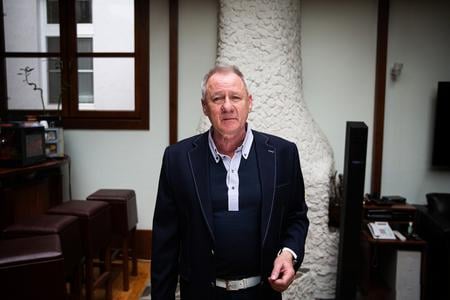The large white house outside the town of Veľaty in eastern Slovakia, surrounded by a small forest, fields and a recently repaired first-class road, is more special than it seems at first glance. The house, Aqua Maria, is a guesthouse, or pension. It belongs to the Rusňák family, who are proud of their long-running business that goes back to communist times.
At first, Slavomír Rusňák’s grandfather, Jozef, ran a motel here. At that time, it was owned by the Jednota cooperative. Later, Jozef’s son and Slavomír’s father, Štefan, built a motor camping site with 15 cabins in the area. In 1994, five years after the fall of communism, the family bought the motel from Jednota and turned the place into a high-class resort with somewhat tropical vibes.
The place is an excellent gateway to the famous Tokay wine region, which spreads across the border between Slovakia and Hungary. Here, generations of winemakers have been making legendary Tokay wine, which is matured in century-old volcanic tuff cellars.
Passing on know-how
Wine production is one of the few areas where the communist regime did not completely interrupt the passing on of know-how and expertise from one generation to the next. Family businesses were not allowed to operate during the communist regime, i.e. from the late 1940s until 1989, when the totalitarian regime was toppled, because private entrepreneurship was not allowed under communism. Small craftspeople, like farmers, wine makers and beekeepers, were allowed to produce fruits and vegetables, wine and honey, but only for their own consumption. They were allowed, officially, to sell only “surpluses”, i.e. what they did not consume. Nevertheless, this was enough to allow the transfer of know-how from one generation to another.



